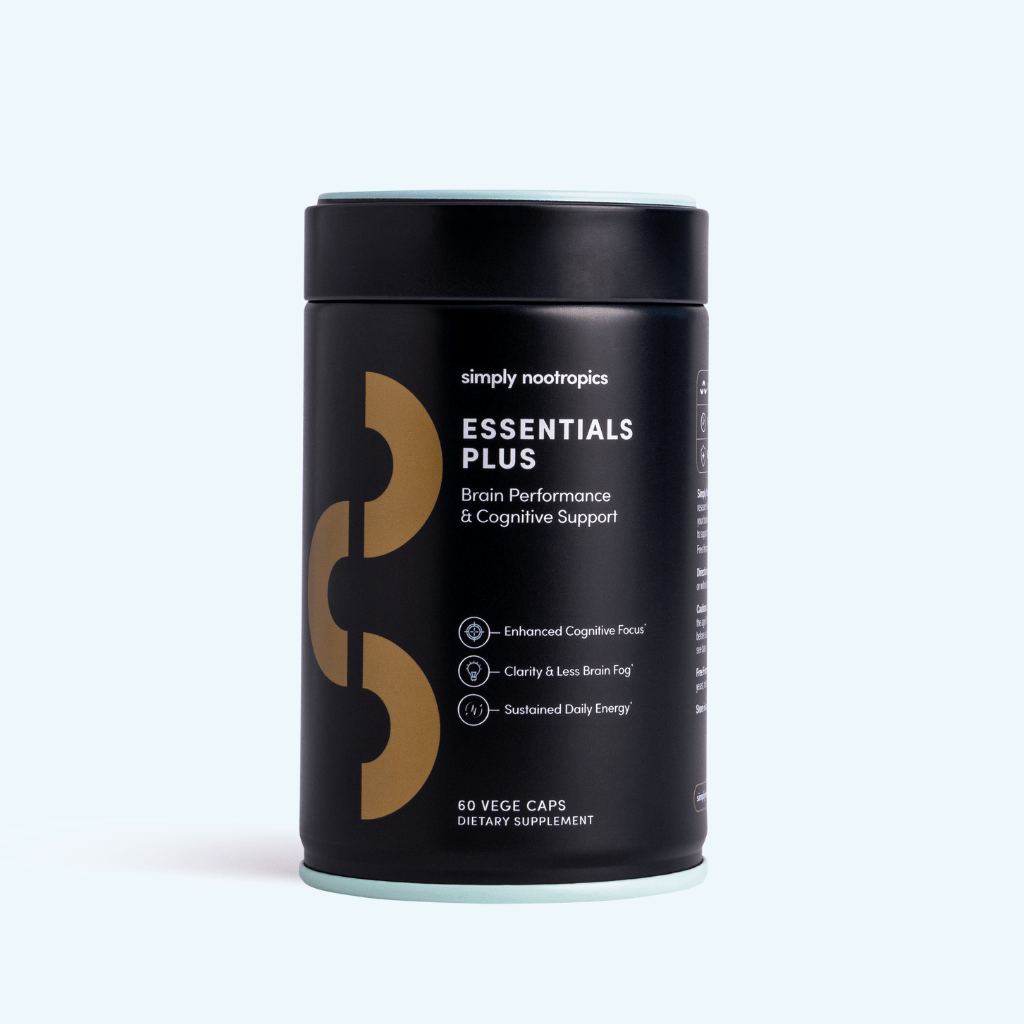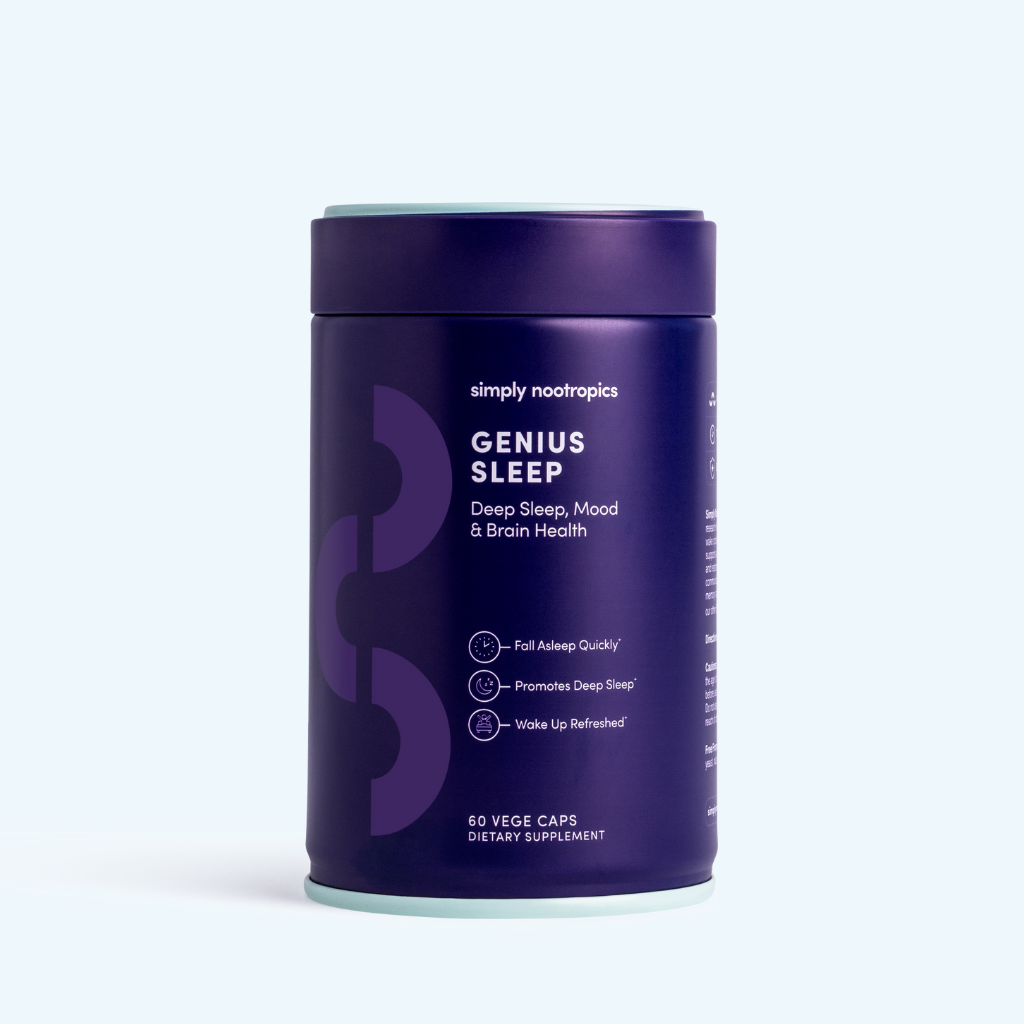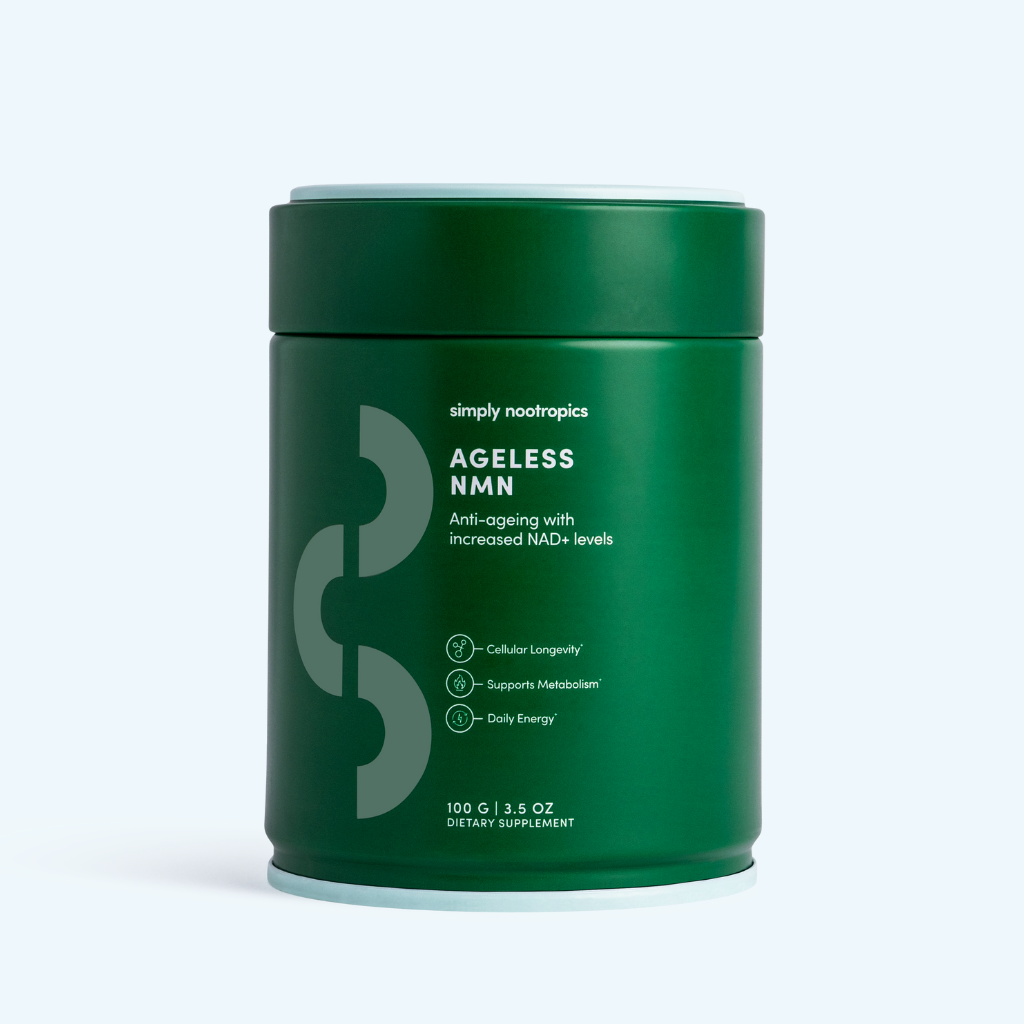We tend to think of breathing as automatic, harmless, and barely worth a second thought. But how you breathe, especially during sleep, can affect everything from how clearly you think to how well your cells make energy. And if you're breathing through your mouth most of the time, your brain and body may be working harder than they need to.
What Is Mouth Breathing, and Why Does It Matter?
Mouth breathing is exactly what it sounds like: breathing primarily through your mouth rather than your nose. It can happen while you're awake, but it's even more common at night, especially in people with allergies, sinus issues, or disrupted sleep.
The problem? Mouth breathing bypasses some of the most important functions of the nasal passages. Your nose isn’t just there to filter air, it also:
-
Warms and humidifies air before it enters the lungs
-
Produces nitric oxide (NO), a gas that improves oxygen delivery and blood flow
-
Slows your breathing rate, which helps regulate your nervous system
When you breathe through your mouth, especially while sleeping, you lose these benefits, and that can have a ripple effect.
The Brain on Mouth Breathing
Your brain is the single most oxygen-hungry organ in your body. While it makes up just 2% of your body weight, it consumes around 20% of the oxygen you breathe.
Mouth breathing tends to be shallow, fast, and less efficient. You’re not oxygenating as well, and you may be over-breathing, leading to lower carbon dioxide levels, which can actually reduce oxygen delivery to cells (this is called the Bohr effect).
Over time, this can lead to:
-
Mental fatigue
-
Brain fog and forgetfulness
-
Irritability, anxiety, and poor stress regulation
-
Reduced alertness during the day, despite sleeping “enough”
There’s even evidence that mouth breathing in children and adolescents is linked to lower cognitive performance, slower reaction times, and impaired attention.
The Sleep Connection: Why You Wake Up Tired
Mouth breathing doesn’t just affect daytime function, it also undermines your sleep quality, even if you’re unconscious.
When you breathe through your mouth at night:
-
The jaw and tongue position change, potentially narrowing the airway
-
You’re more likely to snore or experience sleep-disordered breathing
-
Oxygen saturation levels may dip, fragmenting sleep and lowering its restorative quality
This explains why some people wake up with a dry mouth, groggy head, and that sense of never having really rested, no matter how early they went to bed.
Poor sleep quality over time also depletes your body’s reserves of NAD+, the molecule that helps your cells produce energy, repair DNA, and keep ageing processes in check.
Mitochondria Don’t Like Low Oxygen
Mouth breathing = less efficient oxygen delivery. And your mitochondria, the tiny engines inside your cells, need oxygen to function.
When cells don’t get enough oxygen:
-
They shift towards less efficient energy production
-
Free radicals can accumulate, increasing oxidative stress
-
DNA repair and cell signalling become less effective
That’s a big deal, especially in high-energy tissues like the brain, muscles, and heart. It’s also one reason why mouth breathing has been loosely associated with earlier onset of fatigue, inflammation, and even biological ageing markers.
How to Tell If You're a Mouth Breather
Even if you're not aware of it, these signs may suggest you're breathing through your mouth more than you think:
-
You wake up with a dry mouth or sore throat
-
You often feel tired despite getting 7–8 hours of sleep
-
You snore
-
You feel foggy or unfocused during the day
-
You regularly deal with nasal congestion or allergies
Some people even report dental issues or changes in facial structure over time, especially if mouth breathing started in childhood.
Why Mouth Breathing Hits Energy So Hard
When we think about fatigue, we often jump to late nights or stress, but oxygen inefficiency is also a contributor, especially when it becomes chronic. If you’re breathing through your mouth day and night, you’re subtly overworking your system. You may be getting enough air volume, but the delivery is off.
Mouth breathing reduces nitric oxide levels, which play a key role in dilating blood vessels and optimising oxygen transport. Less nitric oxide = poorer oxygen uptake by tissues = sluggish mitochondria.
Over time, your body compensates by shifting more energy production to less efficient, anaerobic pathways. This doesn’t just affect how you feel after a workout. it shows up as slower mental processing, weaker memory recall, and that wired-but-tired sensation that’s hard to shake.
And here’s the kicker: low cellular oxygen availability is also linked to accelerated NAD+ depletion. That means your cells have less capacity for repair, metabolism slows, and inflammatory markers can climb.
What You Can Do
The good news is that you can fix mouth breathing with simple, consistent changes:
-
Train nasal breathing during the day
To fix mouth breathing, make a conscious effort to keep your mouth closed and breathe through your nose, especially during rest and low-intensity activity. -
Try mouth taping at night
To fix mouth breathing, try a small strip of skin-safe tape over the lips can encourage nasal breathing during sleep. It sounds extreme, but many people find it surprisingly helpful. -
Support healthy nasal airways
To fix mouth breathing, use saline rinses, antihistamines (as needed), or nasal strips to reduce congestion and inflammation that forces mouth breathing. -
Strengthen your diaphragm
To fix mouth breathing, try breathing exercises like box breathing or alternate nostril breathing, which can improve your breathing mechanics and reduce reliance on shallow chest breathing. -
Address sleep hygiene
To fix mouth breathing, limit screens before bed, keep your bedroom cool and dark, and stick to a regular routine to maximise deep, restorative sleep.
Support from the Inside, Too
Your breathing habits affect your nervous system, sleep quality, and even how well your body regenerates at night. That’s why internal support can help strengthen the foundation you’re already working on if you want to fix mouth breathing.
Ageless NMN
Mouth breathing may impair mitochondrial efficiency and deplete cellular energy over time. Simply Nootropics Ageless NMN helps replenish NAD+ levels, supporting the energy demands of your brain and body, especially during sleep. NMN also helps buffer against inflammation and stress, both of which are worsened by disrupted breathing patterns.
Genius Sleep
If you’re a night-time mouth breather, your nervous system likely needs some support. Simply Nootropics Genius Sleep blends calming adaptogens like reishi mushroom, magnesium, L-tryptophan, and passionflower to help reduce restlessness and improve sleep depth, so you wake up feeling sharper, not sluggish.
















